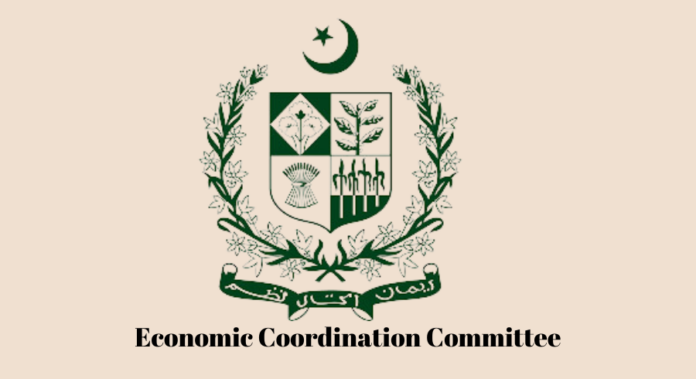ISLAMABAD: In a policy shift the Economic Coordination Committee (ECC) of the Cabinet has approved a proposal from the Ministry of Commerce to streamline the Pre-Shipment Inspection (PSI) regime under the Import Policy Order (IPO) 2022, in a move aimed at improving quality control, transparency, and compliance in Pakistan’s import system.
The decision, based on a detailed summary submitted by the Ministry of Commerce, will expand the number of eligible pre-shipment inspection agencies while ensuring that only internationally accredited organizations are allowed to inspect imports into Pakistan.
According to available documents, the PSI process—responsible for certifying the quality, quantity, and specifications of imported goods before their shipment to Pakistan—had previously been limited to a small number of approved agencies listed in Appendices D, H, and O of the IPO 2022. These agencies conducted inspections for agricultural, mechanical, electrical, chemical, and engineering products.
The Commerce Ministry, responding to multiple requests from importers and stakeholders, proposed broadening the PSI framework to include more agencies that meet strict international accreditation standards. After extensive consultations with the Federal Board of Revenue (FBR), Pakistan Standards and Quality Control Authority (PSQCA), Pakistan National Accreditation Council (PNAC), and Pakistan Single Window (PSW), a consensus was reached to introduce new eligibility criteria for PSI firms.
Under the approved amendment, only those PSI agencies registered with PSQCA and accredited by PNAC, whose foreign principals are recognized by the International Laboratory Accreditation Cooperation (ILAC)—will now be authorized to conduct inspections. ILAC is an international body that oversees global laboratory and inspection accreditation standards.
The ECC endorsed the Ministry’s proposal to insert a new clause—Paragraph 6(12) into the Import Policy Order, formally defining the new eligibility requirements for PSI agencies. The existing lists of approved agencies will remain valid until December 31, 2025, providing time for alignment with the updated framework.
The Commerce Ministry noted that the move would help curb substandard imports, promote international best practices, and support trade facilitation through transparency and standardization. By mandating ILAC-based accreditation, Pakistan aims to ensure that inspections conducted abroad meet uniform technical and quality benchmarks recognized globally.
Officials said the revised framework is expected to improve consumer protection, product reliability, and regulatory efficiency, particularly in sensitive sectors such as machinery, electrical equipment, industrial chemicals, and agricultural imports.
Sources within the ministry added that the decision aligns with the government’s broader objective of reforming Pakistan’s import system to comply with international trade norms and support the “Ease of Doing Business” agenda, while simultaneously safeguarding national economic interests.
The ECC’s approval marks a significant regulatory update within the Ministry of Commerce’s ongoing efforts to modernize trade facilitation and reinforce the credibility of Pakistan’s import certification process.




